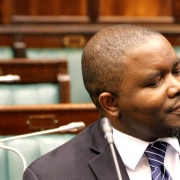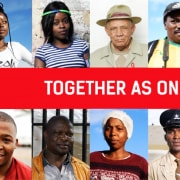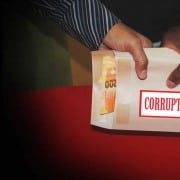|
Getting your Trinity Audio player ready...
|
The implementation of measures to cut wasteful expenditure in government and spot checks on those suspected to be running our local government sector to the ground. That’s as far as President Jacob Zuma went to deal with the issue of corruption in his State of the Nation Address (Sona) on Thursday.
He made no mention, once again, of what remedial or punitive action is to be taken against those who continue to put state finances under pressure by spending unnecessarily or unlawfully.
Although Treasury has issued frequent calls for officials to tighten their belts and stay within budget, evidence presented through the auditor-general’s annual reports shows that only certain areas of government tend to adhere, while others simply continue the reckless conduct with impunity.
Despite morning newspaper headlines across the country promising Zuma’s “most important Sona” yet – citing the economy, recent racial tensions and his own case of accountability in the Nkandla matter to answer to – he failed to rise to the occasion and give South Africans what is most needed at this point: confidence in the government.
Wasteful expenditure
Keeping South Africa’s current economic climate in mind, said Zuma, a decision had been made on how best to cut costs in the running of the state.
“In 2013, the minister of finance announced a number of cost containment measures. Excessive and wasteful expenditure has been reduced, but there is still more to be done to cut wastage.” Zuma then went on to mention cost cutting measures that will now be implemented. These include:
- Reducing overseas trips and tightening requirements for those requesting permission to go on these trips
- Reducing and standardising the sizes of delegations on such trips
- Further restrictions on conferences, catering, entertainment and social functions
- Removing the budget vote dinners for stakeholders hosted by government departments in Parliament,
Zuma did also promise more detail in Finance Minister Pravin Gordhan’s budget speech later this month.
Local government
The Back to Basics programme that is meant to revamp local government is working, said Zuma. The programme was introduced during Gordhan’s tenure as co-operative governance minister, which ended in December when he moved back to the post he had previously held in finance.
“In this second phase of implementation, national government will engage in more active monitoring and accountability measures.
“This includes unannounced municipal visits, spot checks of supply chain management processes, the implementation of recommendations of forensic reports, site visits of municipal Infrastructure Grant funded projects, and increased interventions to assist struggling municipalities.”
One such intervention was done by Treasury in 2015. In March, the treasury had warned over 50 municipalities across the country that the Local Government Equitable Share would be withheld because their finances were in a bad place. These municipalities owed millions to creditors, including Eskom and water boards, effectively contravening their Municipal Finance Management Act (MFMA) obligations. Agreements were made to repay the funds, but through an evaluation exercise later in the year Treasury found that over half of the municipalities involved had defaulted on their repayment arrangements. The provincial administrations to which the affected municipalities report have since been roped in to oversee adherence to the programme.
In his 2013/14 audit report of local government, released in June last year, Auditor-General Kimi Makwetu noted that although wasteful and irregular expenditure had decreased, unauthorised spending was still a problem, as was shoddy supply chain management. He further stated that even though the MFMA provides for investigations into transgressions such as unauthorised spending, he was not seeing enough evidence of this happening at local government level.
Carefully omitted
Thursday’s speech had been dubbed Zuma’s most important Sona to date, and it looked like silence on certain issues engulfing his administration was not an option. While he referred to a walkabout in Pretoria’s Marabastad area on Monday, he carefully omitted mention of the issue of corruption at the notorious refugee centre run by the Department of Home Affairs in the area. The Marabastad centre handles the largest number of asylum requests in the country and thus bears a higher corruption burden than any other.
Zuma encountered foreign nationals during his Marabastad visit, who brought the matter to his attention and at the time promised to “inform the minister of home affairs Mr Malusi Gigaba on the matter.”
The president will find that Corruption Watch and several other organisations such as Lawyers for Human Rights, Peace Action and others beat him to it. Since the middle of 2014, Corruption Watch’s Project Lokisa has taken awareness material to Home Affairs offices and refugee centres around Gauteng, while senior management within the department are being engaged in an effort to quell the corruption incidents alleged by foreign nationals.
If the Sona’s assurances are anything to go by, Zuma’s administration will always make provision for reactionary measures in dealing with corruption, while the root cause of it and lack of leadership in its combating remain unchallenged.








